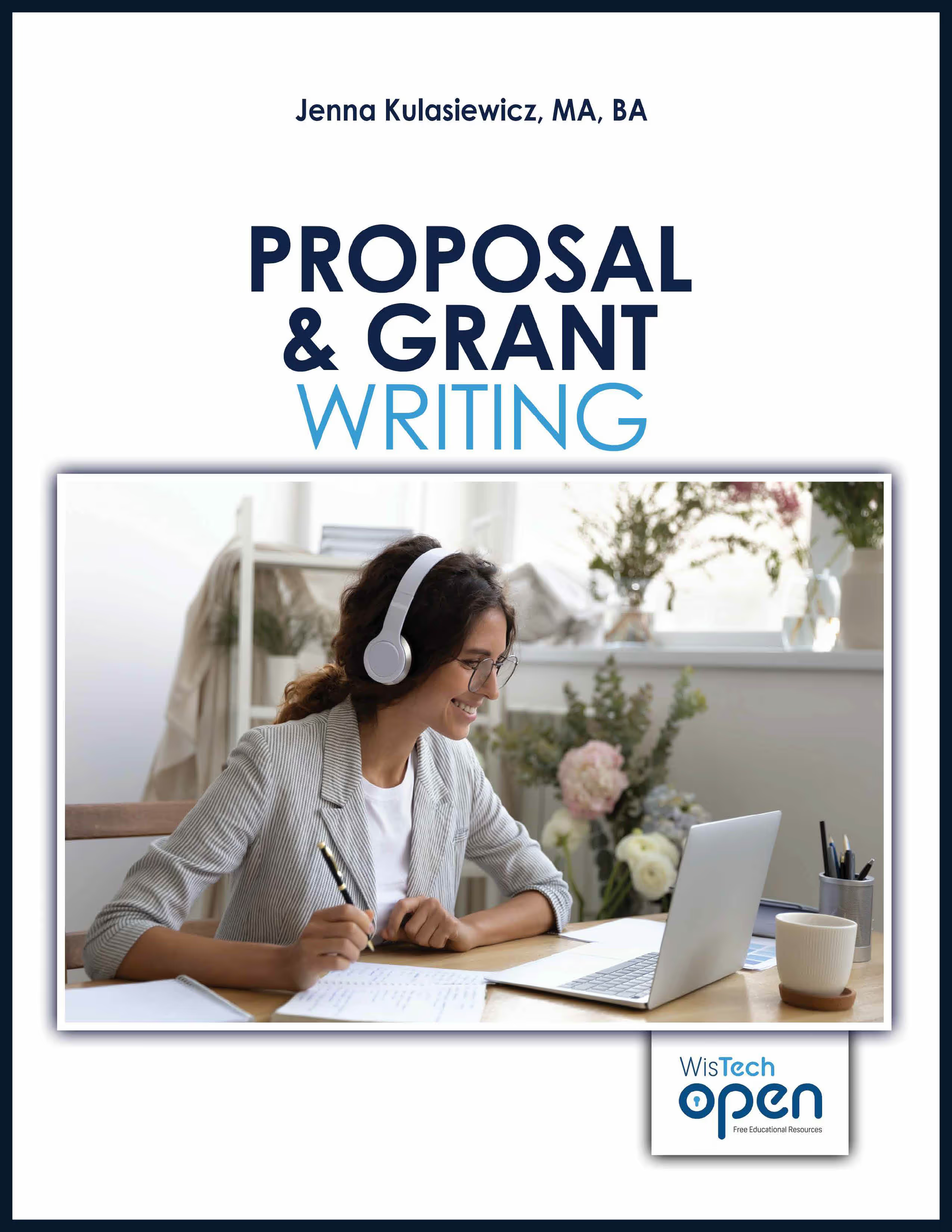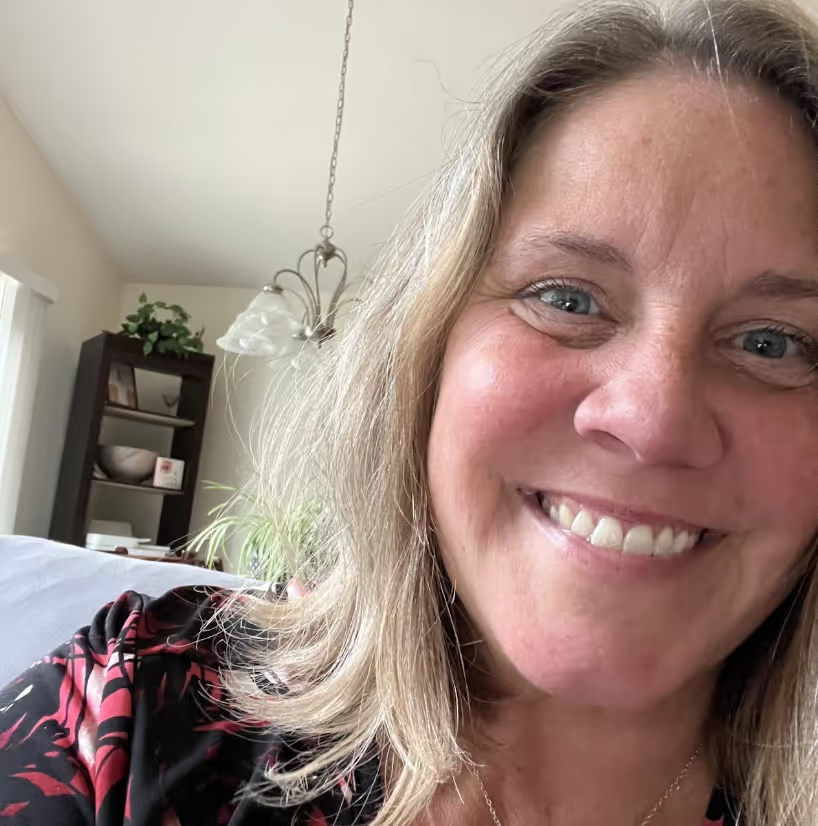Course Competency 1: Analyze persuasion strategies.
- Identify rhetorical appeals
- Distinguish sponsor values
- Document applicant credibility
- Apply proposal logic
- Examine proposal psychology and logic
Course Competency 2: Evaluate Request for Proposals (RFPs).
- Assess for relevance
- Assess for feasibility
- Assess for probability
- Analyze evaluation criteria
- Ascertain funds availability
- Confirm acceptable uses for funds
- Distinguish alternative terms
- Identify background/problem
- Establish priority funding areas
- Determine methodological approaches
- Analyze timelines
Course Competency 3: Explore funding options for grant projects.
- Match request with appropriate grant funders
- Identify sponsor priorities
- Access grant directories
- Distinguish between public and private funding
- Compose grant appeals
- Explain strategies for personal contact
Course Competency 4: Create systematic approach to writing grants.
- Plan questions using PREP method
- Practice requesting application forms and guidelines
- Construct appropriate communication for contacting past grantees
- Construct appropriate communication for contacting reviewers
- Construct appropriate communication for contacting program officers
Course Competency 5: Write elements of a proposal.
- Compose an introduction
- Describe the need or problem
- Explain methodology
- Determine evaluation methods
- Predict methods of dissemination
- Summarize project in abstract
- Compose a cover letter
Course Competency 6: Modify proposal appearance.
- Modify materials to match sponsor materials
- Comply with style and layout requirements
- Adhere to format requirements
- Prepare charts and graphs to enhance materials
- Select transitions to add coherence to narrative
- Use white space for readability
Course Competency 7: Develop letter proposal.
- Use proper business letter format
- Compare letter proposals to full grant proposals
- Summarize project elements
- Create ancillary materials appropriate for letter proposals
Course Competency 8: Value responsible grant stewardship.
- Prepare plan for site visits
- Review plans to meet grant terms and conditions
- Explain publicity plan for grant award
- Investigate options for developing rapport with grantee
You are free to:
– Share — copy and redistribute the material in any medium or format
– Adapt — remix, transform, and build upon the material for any purpose, even commercially
Under the following terms:
– Attribution — You must give appropriate credit to WisTech Open, provide a link to the license, and indicate if changes were made. You may do so in any reasonable manner, but not in any way that suggests WisTech Open endorses you or your use.
License: https://creativecommons.org/licenses/by/4.0/
WisTech Open, including the Open RN and Bright Beginnings series, does not provide ancillary or instructor materials. You can instead create free, customized supplementary resources—slides, quizzes, worksheets, study guides, and more - on demand, through our generative AI platform, WisTech Fusion: https://www.wistechopen.org/wistech-fusion. Fusion only uses content from WisTech Open, Open RN, and Bright Beginnings resources.
To help keep print textbook costs low for our students, please consider using the electronic version, or purchasing a personal print copy, rather than requesting a publisher/desktop version from our printing partner. Orders can be placed through Kendall Hunt: https://he.kendallhunt.com/catalog.

.svg)
